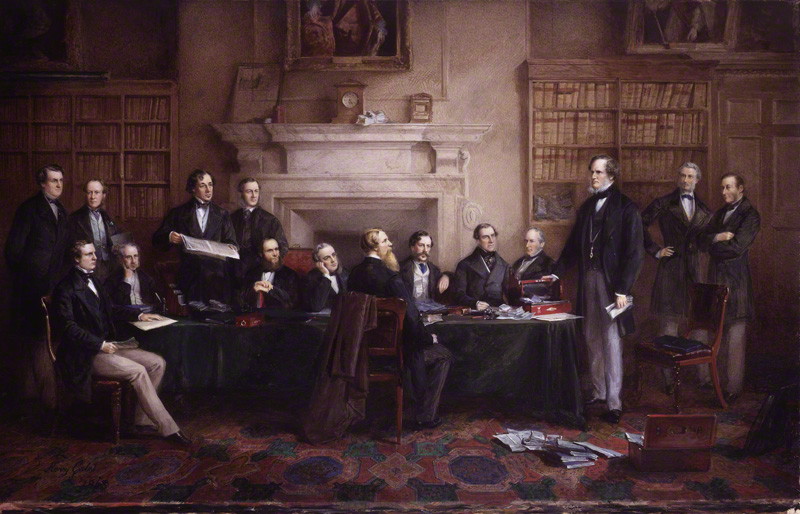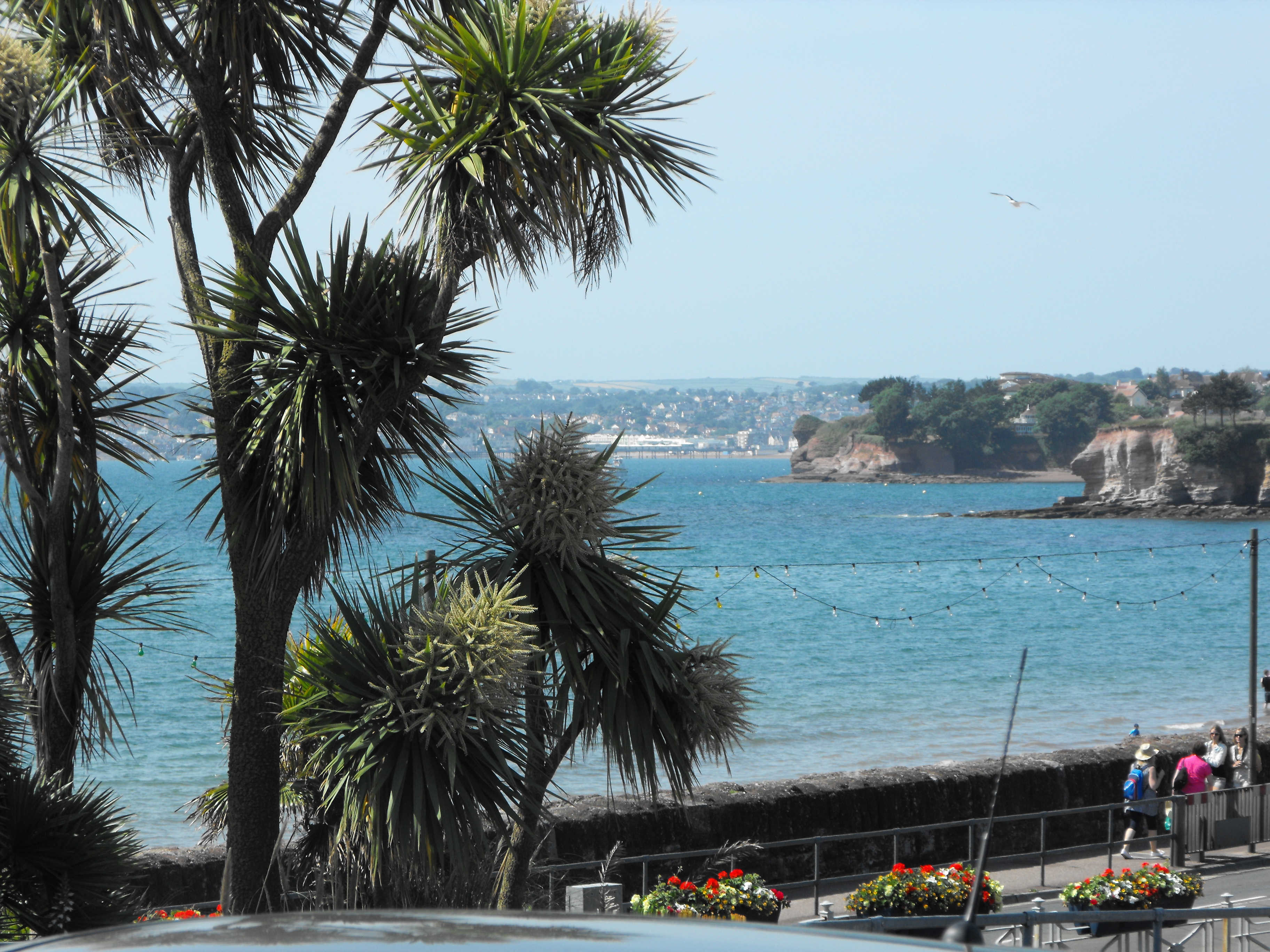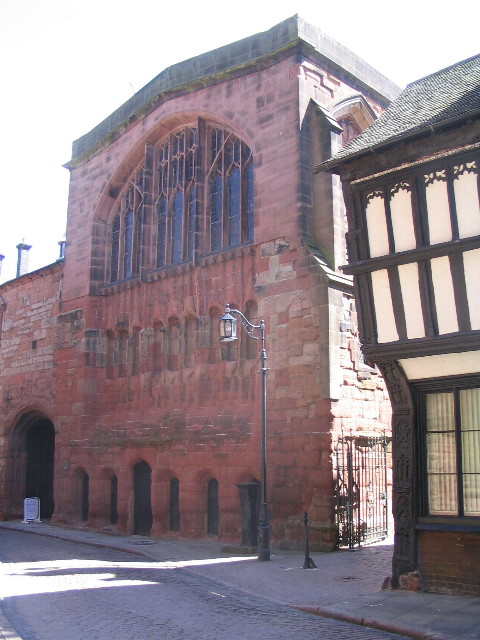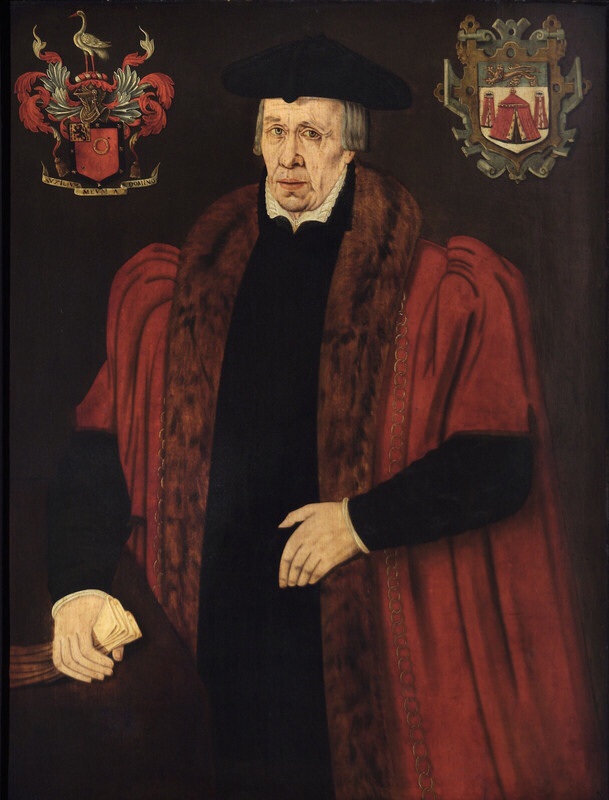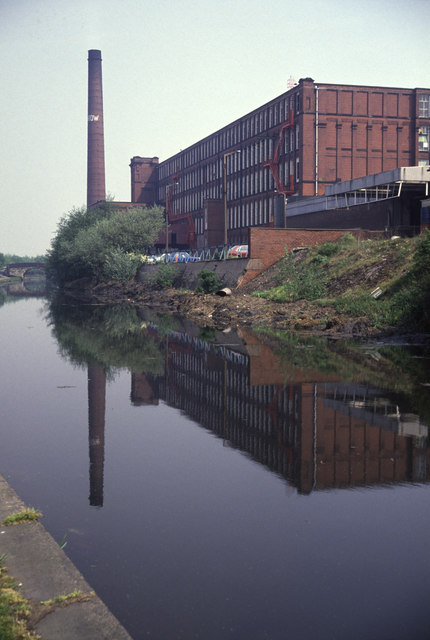|
Wills Brothers
The Wills Brothers, also known as W. J. & T. Wills, consisting of William John (born in Islington, London) and Thomas Wills (born in St Pancras, London) were a firm of sculptor brothers who were noted for their sculpture and modelling work between 1857 and 1895. Annual exhibitors at the Royal Academy until 1884, they were best known for their designs of drinking fountains, and were employed by the Metropolitan Free Drinking Fountain Association and Coalbrookdale Company. They were noted for their cast iron work in particular, made by the Coalbrookdale Company. In 1859 they were commissioned to design the "People's Fountain" for the Bolton Metropolitan Borough Council, costing £114 in total (of which £80 was for the sculpture) and completed in 1860. The statue on a high pedestal was relocated in 1866 to Bolton Park (later renamed Queen's Park). In 1978 the statue was vandalised beyond repair; it was replaced on the pedestal with an inferior statue of a woman pouring wat ... [...More Info...] [...Related Items...] OR: [Wikipedia] [Google] [Baidu] |
Lord Mayo
Richard Southwell Bourke, 6th Earl of Mayo, (; ; 21 February 1822 – 8 February 1872) styled Lord Naas (; ) from 1842 to 1867 and Lord Mayo in India, was a British politician, statesman and prominent member of the Conservative Party (UK), British Conservative Party who served as Chief Secretary for Ireland (1852, 1858–9, 1866–8) and Governor-General of India, Viceroy of India (1869–72). Background and education Mayo was born in Dublin, United Kingdom of Great Britain and Ireland, Ireland, the eldest son of Robert Bourke, 5th Earl of Mayo (the son of Richard Bourke (bishop), Hon. Richard Burke, Bishop of Waterford and Lismore), and his wife, Anne Charlotte, daughter of the Hon. John Jocelyn. His younger brother the Hon. Robert Bourke, 1st Baron Connemara, Robert Bourke was also a successful politician. He was educated at Trinity College, Dublin. He and his brothers were accomplished horsemen and enjoyed fox hunting. Political career After travelling in Russia, Mayo ... [...More Info...] [...Related Items...] OR: [Wikipedia] [Google] [Baidu] |
19th-century English Male Artists
The 19th (nineteenth) century began on 1 January 1801 ( MDCCCI), and ended on 31 December 1900 ( MCM). The 19th century was the ninth century of the 2nd millennium. The 19th century was characterized by vast social upheaval. Slavery was abolished in much of Europe and the Americas. The First Industrial Revolution, though it began in the late 18th century, expanding beyond its British homeland for the first time during this century, particularly remaking the economies and societies of the Low Countries, the Rhineland, Northern Italy, and the Northeastern United States. A few decades later, the Second Industrial Revolution led to ever more massive urbanization and much higher levels of productivity, profit, and prosperity, a pattern that continued into the 20th century. The Islamic gunpowder empires fell into decline and European imperialism brought much of South Asia, Southeast Asia, and almost all of Africa under colonial rule. It was also marked by the collapse of the large S ... [...More Info...] [...Related Items...] OR: [Wikipedia] [Google] [Baidu] |
English Male Sculptors
English usually refers to: * English language * English people English may also refer to: Peoples, culture, and language * ''English'', an adjective for something of, from, or related to England ** English national identity, an identity and common culture ** English language in England, a variant of the English language spoken in England * English languages (other) * English studies, the study of English language and literature * ''English'', an Amish term for non-Amish, regardless of ethnicity Individuals * English (surname), a list of notable people with the surname ''English'' * People with the given name ** English McConnell (1882–1928), Irish footballer ** English Fisher (1928–2011), American boxing coach ** English Gardner (b. 1992), American track and field sprinter Places United States * English, Indiana, a town * English, Kentucky, an unincorporated community * English, Brazoria County, Texas, an unincorporated community * Engli ... [...More Info...] [...Related Items...] OR: [Wikipedia] [Google] [Baidu] |
Torbay
Torbay is a borough and unitary authority in Devon, south west England. It is governed by Torbay Council and consists of of land, including the resort towns of Torquay, Paignton and Brixham, located on east-facing Tor Bay, part of Lyme Bay on the English Channel. A popular tourist destination, Torbay's sandy beaches, mild climate and recreational and leisure attractions have given rise to its nickname of the "English Riviera". History Human bones and tools found in Kents Cavern in Torquay show that people have inhabited the Torbay area since Paleolithic times. A maxilla fragment known as Kents Cavern 4 may be the oldest example of a modern human in Europe, dating back to 37,000–40,000 years ago. Roman soldiers are known to have visited Torquay during the period when Britannia formed a part of the Roman Empire; they left offerings at a curious rock formation in Kent's Cavern, known as "The Face". A Roman burial was discovered in 1993 in Paignton. Both Brixham ... [...More Info...] [...Related Items...] OR: [Wikipedia] [Google] [Baidu] |
Brixham
Brixham is a coastal town and civil parish, the smallest and southernmost of the three main population centres (the others being Paignton and Torquay) on the coast of Torbay in the county of Devon, in the south-west of England. Commercial fishing and tourism are the two main industries. As of 2020 Brixham had an estimated population of 16,823. It is believed that the name Brixham originates from the personal name of an early resident, Brioc, followed by the Old English suffix, ''ham'' meaning home. The town, which is predominantly hilly, is built around a picturesque natural harbour, which in addition to leisure craft, provides anchorage for what is now one of England’s (but not the UK’s) largest remaining commercial fishing fleets. A conspicuous local tourist attraction is the permanently moored replica of Sir Francis Drake's ship ''Golden Hind''. Historically Brixham was made up of two separate communities connected only by a marshy lane. In Fishtown, in the immediate v ... [...More Info...] [...Related Items...] OR: [Wikipedia] [Google] [Baidu] |
William III Of England
William III (William Henry; ; 4 November 16508 March 1702), also widely known as William of Orange, was the sovereign Prince of Orange from birth, Stadtholder of County of Holland, Holland, County of Zeeland, Zeeland, Lordship of Utrecht, Utrecht, Guelders, and Lordship of Overijssel, Overijssel in the Dutch Republic from the 1670s, and King of England, Monarchy of Ireland, Ireland, and List of Scottish monarchs, Scotland from 1689 until his death in 1702. As King of Scotland, he is known as William II. He is sometimes informally known as "King Billy" in Ireland and Scotland. His victory at the Battle of the Boyne in 1690 is The Twelfth, commemorated by Unionism in the United Kingdom, Unionists, who display Orange Order, orange colours in his honour. He ruled Britain alongside his wife and cousin, Queen Mary II, and popular histories usually refer to their reign as that of "William and Mary". William was the only child of William II, Prince of Orange, and Mary, Princess Royal an ... [...More Info...] [...Related Items...] OR: [Wikipedia] [Google] [Baidu] |
Henry Edwards (1820–1897)
Sir Henry Edwards (1820 – 4 February 1897) was a British Liberal Member of Parliament for Weymouth and Melcombe Regis from 1867 until 1885, when Weymouth and Melcombe Regis ceased to be a parliamentary borough. Early life Born in London, Edwards was the eldest son of John Edwards of Somerton Court, Somerset, and Elizabeth Brayley. Charity He made generous gifts to the town – ten cottage homes known as Edwards Avenue and 'Edwardsville' in Rodwell Avenue, and also properties in James Street, all designed for elderly inhabitants of the borough. Sir Henry also provided an annual dinner for the elderly of Weymouth (known as the Edwards Dinner Gift). The properties are all today operated under the name Edwards Homes and run by Weymouth Town Charities who run the Sir Henry Edwards and the Sir Samuel Mico Charities. Death Edwards died at his home at 53 Berkeley Square Berkeley Square is a garden square in the West End of London. It is one of the best known of the many ... [...More Info...] [...Related Items...] OR: [Wikipedia] [Google] [Baidu] |
Coventry
Coventry ( or ) is a City status in the United Kingdom, city in the West Midlands (county), West Midlands, England. It is on the River Sherbourne. Coventry has been a large settlement for centuries, although it was not founded and given its city status until the Middle Ages. The city is governed by Coventry City Council. Historic counties of England, Formerly part of Warwickshire until 1451, Coventry had a population of 345,328 at the 2021 census, making it the tenth largest city in England and the 12th largest in the United Kingdom. It is the second largest city in the West Midlands (region), West Midlands region, after Birmingham, from which it is separated by an area of Green belt (United Kingdom), green belt known as the Meriden Gap, and the third largest in the wider Midlands after Birmingham and Leicester. The city is part of a larger conurbation known as the Coventry and Bedworth Urban Area, which in 2021 had a population of 389,603. Coventry is east-south-east of ... [...More Info...] [...Related Items...] OR: [Wikipedia] [Google] [Baidu] |
Thomas White (merchant)
Sir Thomas White (1492 – 12 February 1567) was an English cloth merchant, Lord Mayor of London in 1553, and a civic benefactor and founder of St John's College, Oxford. Biography Thomas White was born in Reading, Berkshire, the son of William White, a clothier of Reading, and his wife, Mary, daughter of John Kibblewhite of South Fawley, also in Berkshire. He was brought up in London. Sir Thomas was twice married, to Avicia (died 1558) and to Joan. A principal member of the guild of Merchant Taylors, he served as Sheriff of London in 1547, and was elected Lord Mayor of London in 1553. He was knighted in the same year by Queen Mary I. He was a member of the commission for the trial of Lady Jane Grey. In 1555, inspired by the example of Thomas Pope, founder of Trinity College, Oxford, White obtained a royal licence for the foundation of St John's College, Oxford, dedicated to the patron saint of the Merchant Taylors and established in the buildings of the dissolved Ciste ... [...More Info...] [...Related Items...] OR: [Wikipedia] [Google] [Baidu] |
Rochdale
Rochdale ( ) is a large town in Greater Manchester, England, at the foothills of the South Pennines in the dale on the River Roch, northwest of Oldham and northeast of Manchester. It is the administrative centre of the Metropolitan Borough of Rochdale, which had a population of 211,699 in the 2011 census. Located within the historic boundaries of the county of Lancashire. Rochdale's recorded history begins with an entry in the Domesday Book of 1086 under "Recedham Manor". The ancient parish of Rochdale was a division of the hundred of Salford and one of the largest ecclesiastical parishes in England, comprising several townships. By 1251, Rochdale had become important enough to have been granted a Royal charter. Rochdale flourished into a centre of northern England's woollen trade, and by the early 18th century was described as being "remarkable for many wealthy merchants". Rochdale rose to prominence in the 19th century as a mill town and centre for textile manufacture ... [...More Info...] [...Related Items...] OR: [Wikipedia] [Google] [Baidu] |
Cockermouth
Cockermouth is a market town and civil parish in the Borough of Allerdale in Cumbria, England, so named because it is at the confluence of the River Cocker as it flows into the River Derwent. The mid-2010 census estimates state that Cockermouth has a population of 8,204, increasing to 8,761 at the 2011 Census. Historically a part of Cumberland, Cockermouth is situated outside the English Lake District on its northwest fringe. Much of the architectural core of the town remains unchanged since the basic medieval layout was filled in the 18th and 19th centuries. The regenerated market place is now a central historical focus within the town and reflects events from its 800-year history. The town is prone to flooding and experienced severe floods in 2005, 2009, and 2015. Etymology ''Cockermouth'' is "the mouth of the River Cocker"; the river takes its name from the Brythonic Celtic word ''kukrā'', meaning 'the crooked one'. It has frequently been noted on lists of unusual ... [...More Info...] [...Related Items...] OR: [Wikipedia] [Google] [Baidu] |
